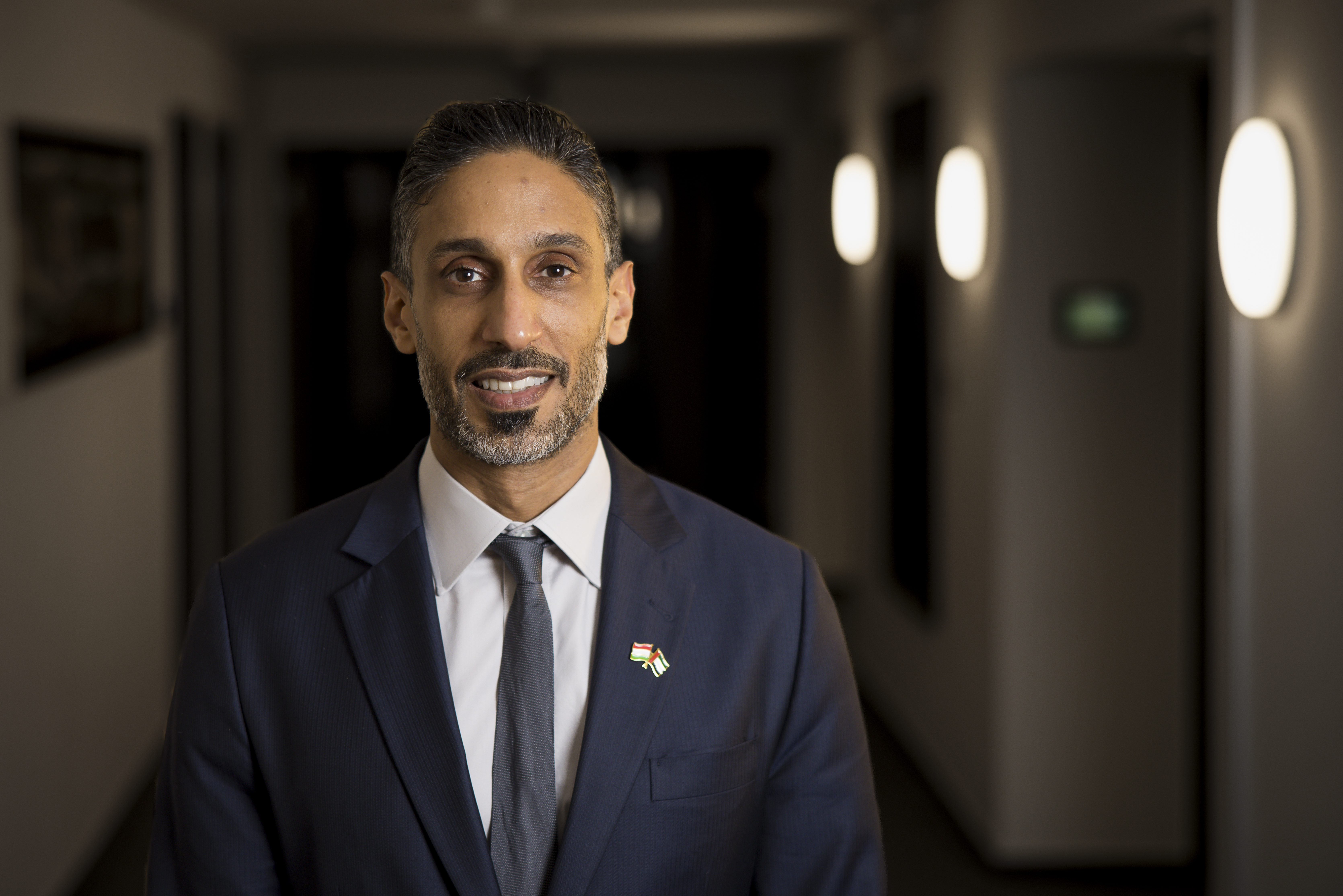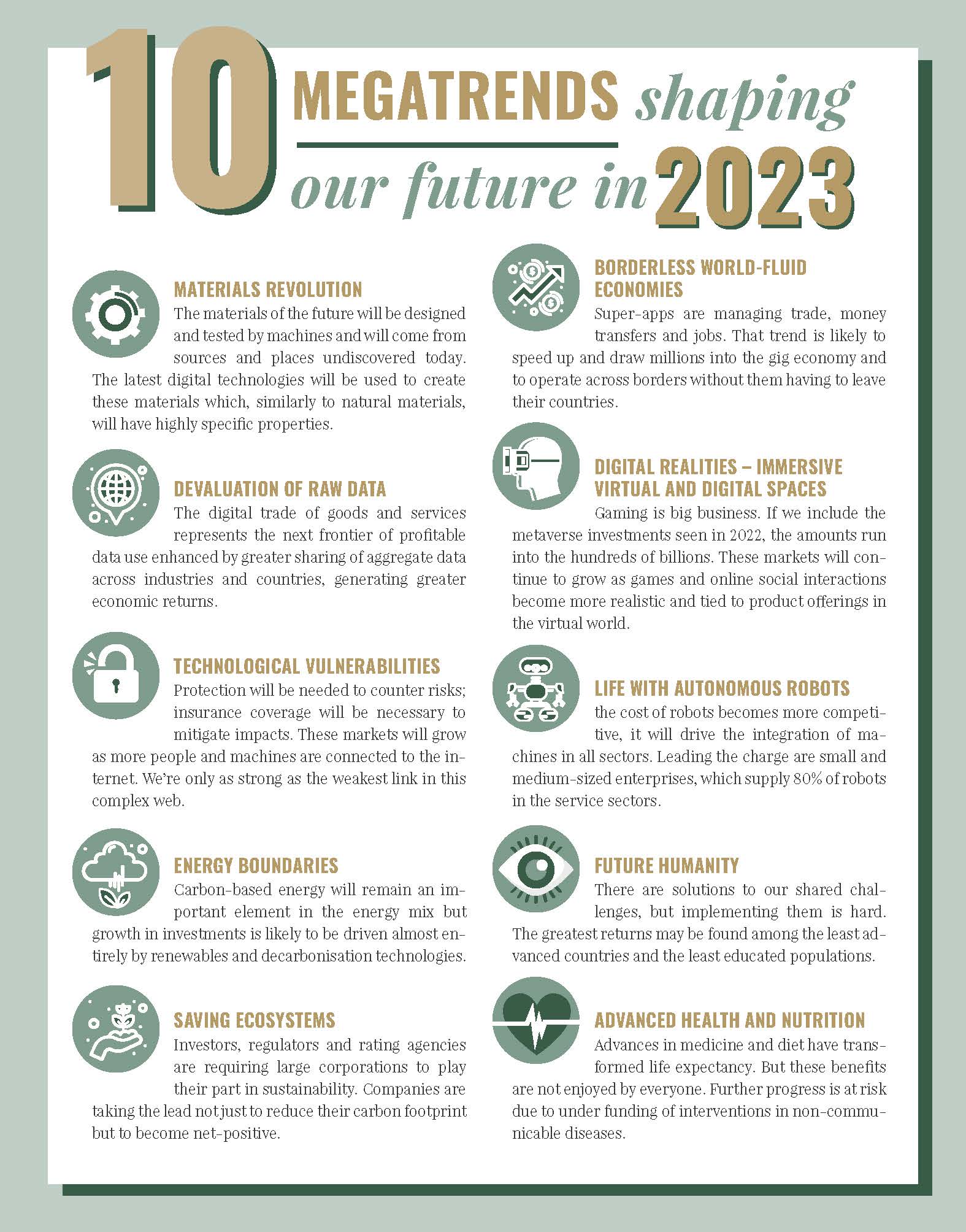
- What are the main reasons for the UAE’s success in the last decades, and what can Europe learn from this rapid development?
- The success story of the United Arab Emirates is not a story of today; it’s a story of the decisions the founding leaders of the country made fifty years ago. That mindset of creating hope, learning from mistakes, empowering leaders, entrusting us as responsible people. Giving us the opportunity to test new ideas. Who would have imagined the biggest airline would be in the United Arab Emirates? They believed that Dubai and the UAE are strategically located to connect the East and the West. So, the simple answer is that we have to think of constantly striving to be number one. It doesn’t mean that we will be number one in everything. But if you hope to be number one all the time, then you will be ready to experiment with new ideas. This is what we do at the Dubai Future Foundation, too.
- What was the main concept of the establishment of the Foundation?
- It’s about converting the way of thinking I mentioned into a process, this thinking of really making big decisions and thinking about the future. The message is that we need to be a leading city of the future. We need to institutionalize future foresight and be the most future-ready city in the world. We have a big team that focuses on research and foresight and produces reports on where the future is heading, and then we launch projects that help create a better future. So there’s one side of the entity that focuses on thinking and foresight, and then we have project managers running projects that create outcomes out of that research and foresight.
- How is the Foundation shaping the government’s policies in your focus areas?
- First of all, we have to understand where the future is heading, for example, in the areas of medicine, autonomous cars or blockchains in financial transactions. In order to change policies in a future-ready way, we have the so-called regulations lab, which tests whether regulations are in favour of innovation, and we submit them to the cabinet. We look at the value of that policy change and its impact on the economy and humankind. If we accept that impact, we invite all the stakeholders. Let’s say we were suggesting a delivery system using drones. We need the civil aviation and all the relevant government agencies. Then we submit this to the regulation lab that takes it all the way to the cabinet of the UAE, and we get it signed. The name of the game is speed. That’s the most important thing because, as you know, technologies advance so fast. So whatever regulation you do today might not be useful in the next six months, right? So you need to constantly change.

- The Museum of the Future provides a whole new museum experience for visitors. What was the background and purpose of this initiative?
- The idea was to build an iconic building and a museum that shows the world what the future challenges are. It triggers curiosity and, at the same time, creates a journey for people to see immensely what the future looks like. But more importantly, in our vision, the building is the home for future-relevant conversations, for example, our flagship forum, the Dubai Future Forum.
- How do you expect the development and use of AI to proceed in the future?
- Whether we like it or not, AI will be part of our lives, and ChatGPT is only the beginning. Imagine this technology plugged into a robot using quantum computing, which is a hundred times faster than a normal computer! What beast are we creating? Is it good or bad? We don’t know. The question is, how can we really create the right process to manage the advancement of this technology? It is happening, and we need to embrace it as we did with other technologies. Who would have imagined two hundred years ago that there would be something like an elevator? We have this comfort today because we embraced this technology. Planes are the same. You fly in a plane now three thousand feet high. You do it every week, every month. And it’s normal. If you spoke to people from five hundred years ago and told them you’d be three thousand feet above the earth, they would think you’re dreaming. But we embraced this technology, too. We have to do the same now, but we have to manage it very carefully.
- So AI and robots will be part of our everyday life?
- We see it on a day-to-day basis now. They’re advancing more and more. We have a robot in the Museum of the Future called Ameca; you can have normal conversations with her, like with a human being. We need to pay attention to this trend because even if we decide that we’re not going to be part of it, the rest of the world will be. So we would only be delaying the inevitable. We need to embrace it and manage it in the best way possible.
- Do you think the use of AI will be regulated on a supranational level?
- With AI, you need to have some unified policy, and that’s our biggest challenge. AI is a global language, so national regulations are not enough. Today, with the digital economy, one press of a button in an application, and the world becomes your market. AI policies need to be unified.
Mariann Őry - the author is managing editor of Eurasia
Luyi Pintér – the author is international expert at Magyar Nemzeti Bank, the central bank of Hungary
